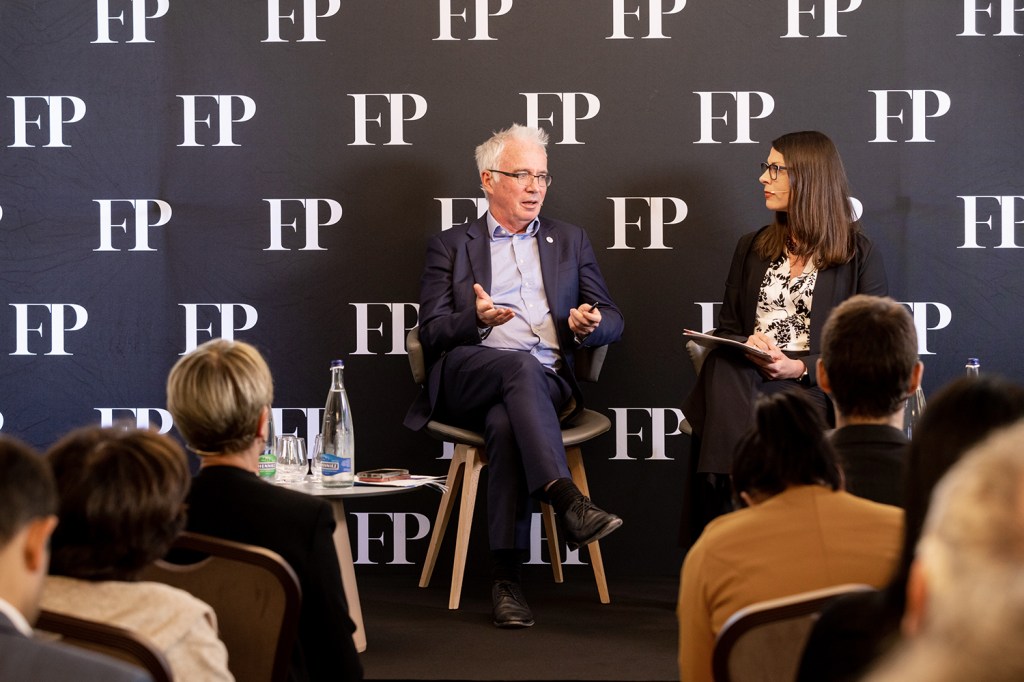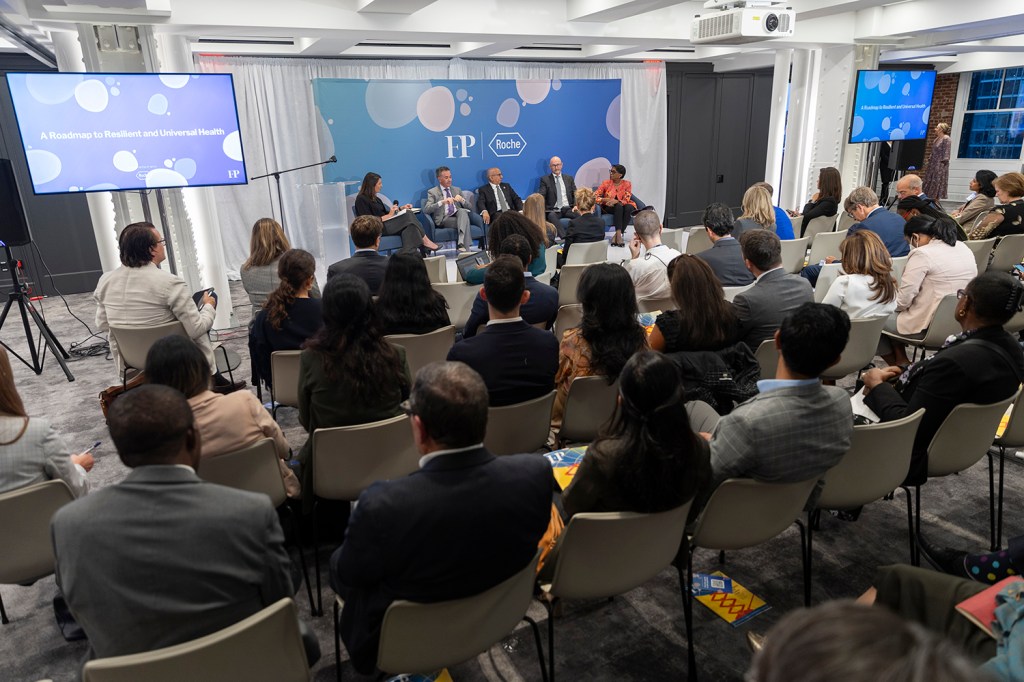December 2023

Prioritizing Diagnostics on the Global Agenda
Expanding access to strengthen global health systems
A 2021 report by the Lancet Commission on Diagnostics found that nearly half the global population lacks access to timely and accurate diagnostics, over 80 percent of whom live in lower- and middle-income countries (LMICs). Widely available, low-cost, accurate diagnostic testing can facilitate the prevention and rapid treatment of communicable and non-communicable diseases (NCDs), creating stronger health care systems and a healthier global population, while reducing the economic impacts of ill health. Read the full report

Diagnostics Beyond 2030
Advancing Global Health Security and the SDGs
On the sidelines of the 78th United Nations General Assembly (UNGA), Foreign Policy and Roche hosted a timely discussion on diagnostics, bringing together policymakers, global health experts, and industry leaders to highlight the role of diagnostics in addressing global health security and achieving the UN Sustainable Development Goals (SDGs). The convening was held amid the high-level meetings on Universal Health Coverage (UHC), Pandemic Prevention, Preparedness and Response, and the fight against Tuberculosis, as well as the global stock-take on progress toward the UN SDGs. Read the full report
Strengthening Diagnostic Capacity
The Role of Multistakeholder Collaboration in Implementing the WHA Resolution
In taking stock of lessons learned since the COVID-19 pandemic, policymakers, civil society, global health experts, and the broader public have gained a new appreciation for the critical role that diagnostics play in ensuring global health security. Public health convenings and committees are increasingly focusing on the need for improved diagnostic accuracy and access, with the Lancet Commission on Diagnostics publishing a milestone report in 2021, which found that 47 percent of the global population—largely in lower- and middle-income countries (LMICs)—lack access to diagnostics. Read the full report

